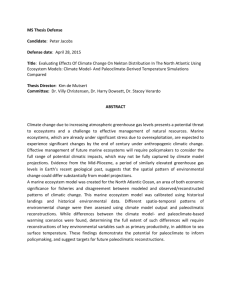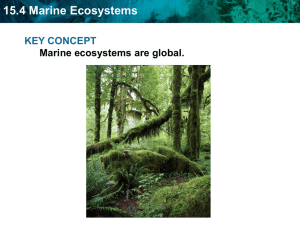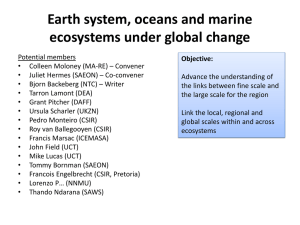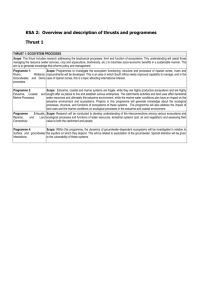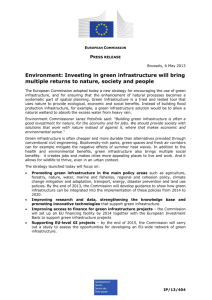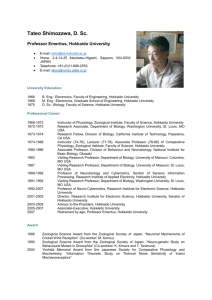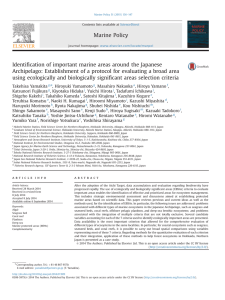Report_summerschool2010_e_draft_101016
advertisement
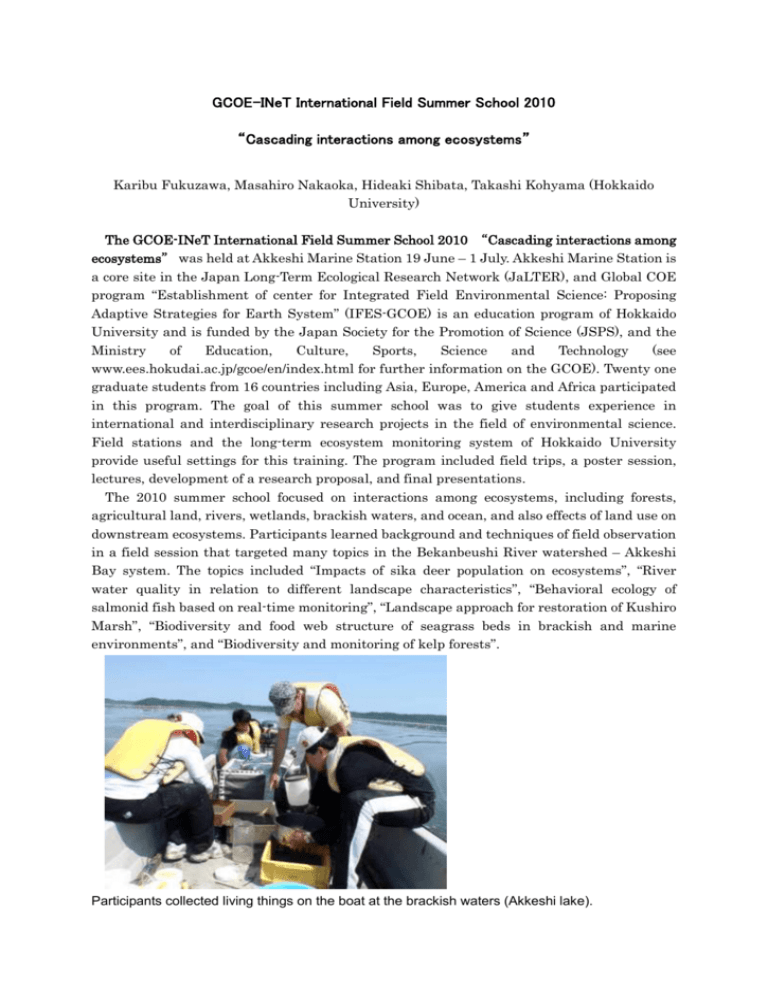
GCOE-INeT International Field Summer School 2010 “Cascading interactions among ecosystems” Karibu Fukuzawa, Masahiro Nakaoka, Hideaki Shibata, Takashi Kohyama (Hokkaido University) The GCOE-INeT International Field Summer School 2010 “Cascading interactions among ecosystems” was held at Akkeshi Marine Station 19 June – 1 July. Akkeshi Marine Station is a core site in the Japan Long-Term Ecological Research Network (JaLTER), and Global COE program “Establishment of center for Integrated Field Environmental Science: Proposing Adaptive Strategies for Earth System” (IFES-GCOE) is an education program of Hokkaido University and is funded by the Japan Society for the Promotion of Science (JSPS), and the Ministry of Education, Culture, Sports, Science and Technology (see www.ees.hokudai.ac.jp/gcoe/en/index.html for further information on the GCOE). Twenty one graduate students from 16 countries including Asia, Europe, America and Africa participated in this program. The goal of this summer school was to give students experience in international and interdisciplinary research projects in the field of environmental science. Field stations and the long-term ecosystem monitoring system of Hokkaido University provide useful settings for this training. The program included field trips, a poster session, lectures, development of a research proposal, and final presentations. The 2010 summer school focused on interactions among ecosystems, including forests, agricultural land, rivers, wetlands, brackish waters, and ocean, and also effects of land use on downstream ecosystems. Participants learned background and techniques of field observation in a field session that targeted many topics in the Bekanbeushi River watershed – Akkeshi Bay system. The topics included “Impacts of sika deer population on ecosystems”, “River water quality in relation to different landscape characteristics”, “Behavioral ecology of salmonid fish based on real-time monitoring”, “Landscape approach for restoration of Kushiro Marsh”, “Biodiversity and food web structure of seagrass beds in brackish and marine environments”, and “Biodiversity and monitoring of kelp forests”. Participants collected living things on the boat at the brackish waters (Akkeshi lake). Two invited professors, Prof. Frederick Swanson (US Forest Service, USA) and Prof. Julia Jones (Oregon State University, USA) gave keynote-lectures entitled “The research and education environment of US Long-Term Ecological Research program – the Andrews Experimental Forest case”, “Ecosystem linkages in watersheds and landscapes” and “Disturbance and material flows in watersheds”. Participants were interested in the lecture that provided the scientific backgrounds and current related issues on the linkage between ecosystems and interdisciplinary research and education program. Group members cooperated for making research proposal. Participants also trained the skill of making proposal of research plan that is one of the unique features of this program. In the proposal training, they formed group and made research proposal including the "research theme," "research questions," "research hypothesis," and "study design & the approach", related to the main theme of the summer school, “Cascading interactions among ecosystems”. During this activity, they also had snap-shot opportunity to carry out field surveys to obtain preliminary data. Close mutual cooperation between each member from variety of countries and study fields was found for synthesizing the proposal. Research themes of each group contained hypotheses and interesting topics, including community dynamics at marine ecosystems; relationship between land use and water quality; effects of changes in terrestrial ecosystem on marine ecosystems, and so on. On the final day, participants gave group presentation on their research proposal with active discussion and mutual evaluation. Overall, participants were very positive, interactive and cooperative during the summer school. We hope the experience in this summer school will help participants to develop international collaborative research in field environmental science and LTER sciences in the future. This summer school will be held once a year until 2012 at field stations (including Japan LTER sites) of Hokkaido University. Group photo at Akkeshi Marine Station, core-site of JaLTER, Akkeshi, Hokkaido, Japan The program organizing committee, comprising Masahiro Nakaoka (Chair), Hideaki Shibata (Vice Chair), Takashi Kohyama, Futoshi Nakamura, Karibu Fukuzawa, Nobuhiko Yoshimura, Takashi Saitoh, Tsutomu Hiura, Yohei Yamashita, Norishige Yotsukura, Kazushi Miyashita, Kentaro Honda, Hiromitsu Kamauchi (Hokkaido University), Frederick Swanson (invited professor, US Forest Service, USA), Julia Jones (invited professor, Oregon State University, USA), would like to thank the staff of GCOE unit and Akkeshi Marine Station. We also would like to thank ILTER and US-LTER Networks, as well as the International Project Office of the Global Land Project, the International Geosphere and Biosphere Program, and the International Human Dimension Program, Natural Geography In Shore Areas (NaGISA) project and members of Seagrass_Forum for identifying and recruiting the participants, and for their helpful cooperation throughout these activities.

